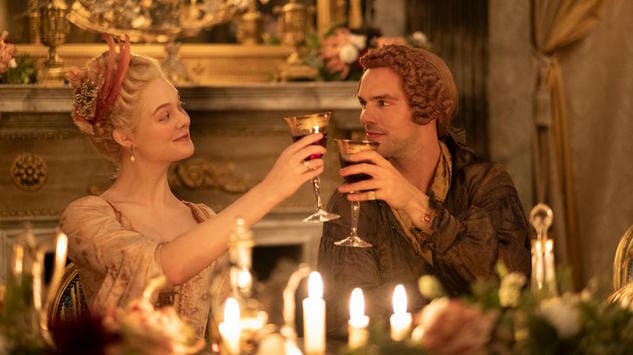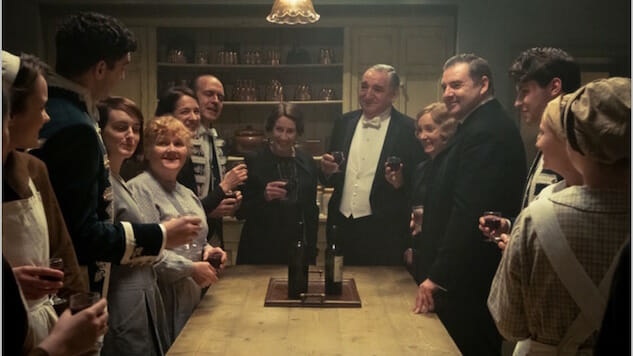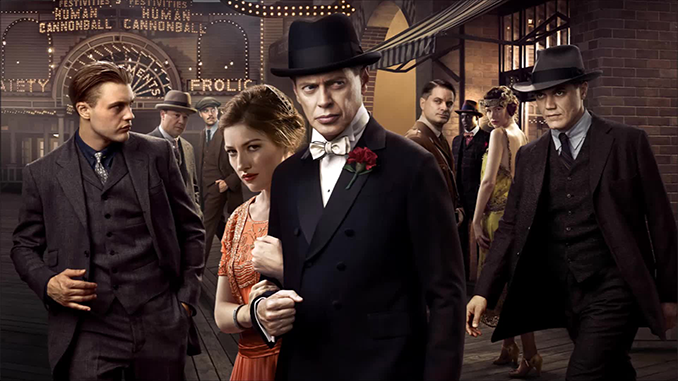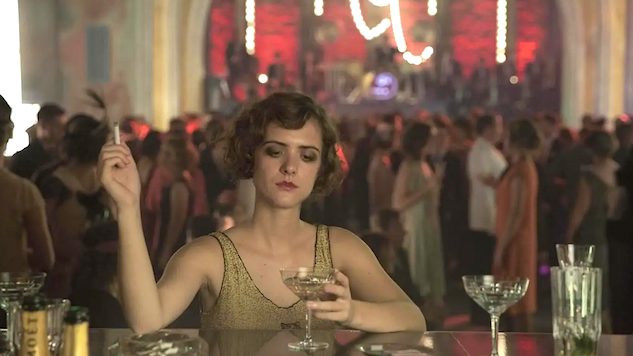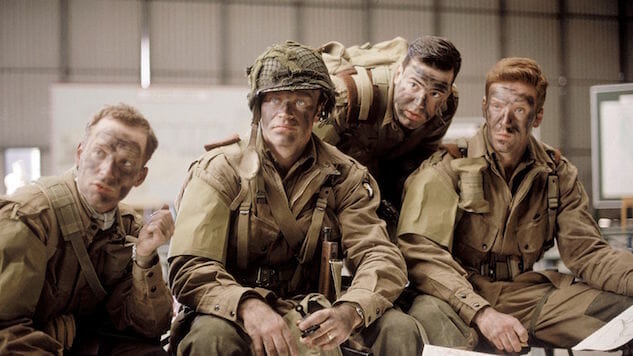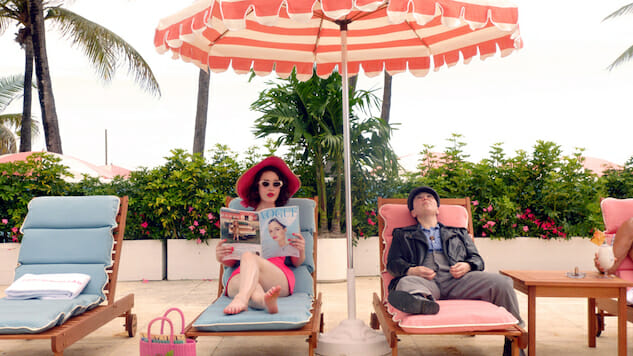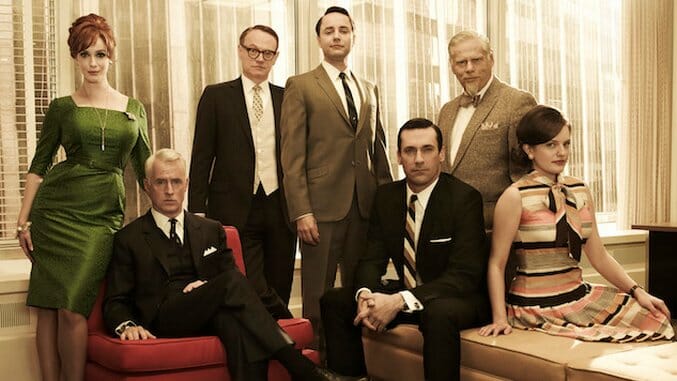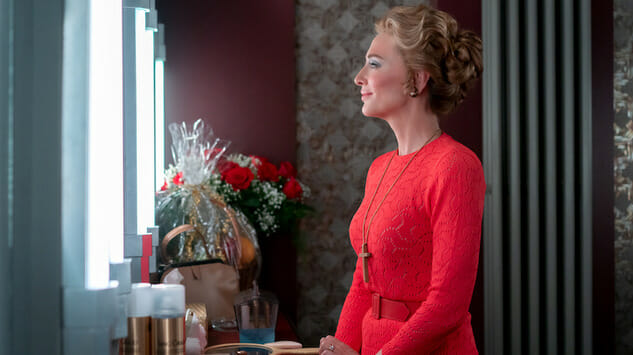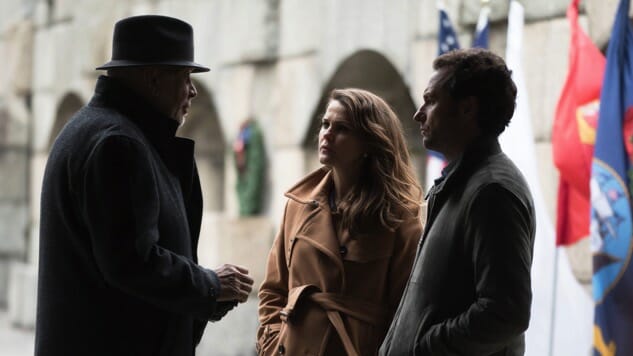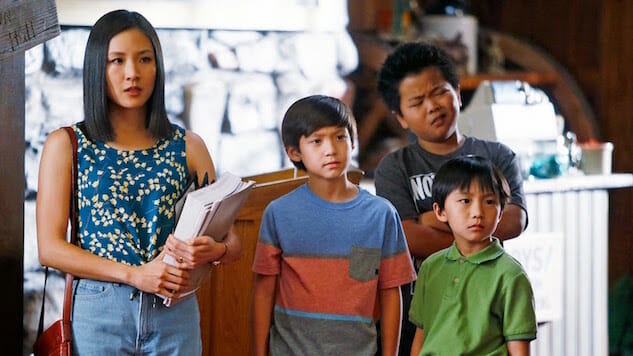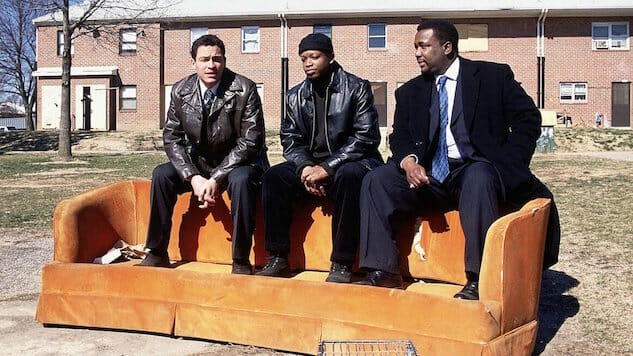Travel Through Time with the Best Historical TV Series for Every Era
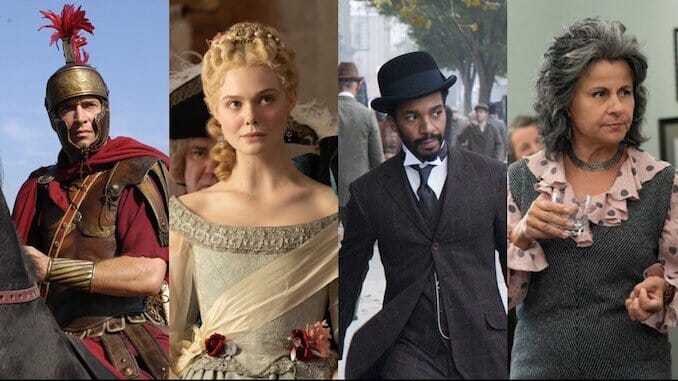
There is educational television, and there is “educational” television. This list deals almost exclusively with the latter. There are facts to be found in these historical TV series, or at least historically set, but they are fictionalized (sometimes greatly so), and will obviously not be as true to life as a documentary. That is, of course, part of the fun. A show like The Great, for example, claims to only be “occasionally” true, but there is something about it that really seems to capture the spirit of the day. And, once a particular time period has sparked your interest, there are certainly plenty of other sources to consult to get the real story.
Still, the sad truth of most television period pieces is that they are very white and Euro-centric. And thus, so is this list (with a few exceptions). Hopefully, we are starting to see that change.
Below, we’ve compiled a list of TV shows taking place from antiquity to the 2000s that best define each time period. To be included, the series have to be specifically about that time, not simply set or made in it (for the 20th century, anyway—again with one exception). Further, they should focus on an important historical figure or political event—no matter how seriously or not they ultimately take their subject matter.
![]()
Antiquity: Rome
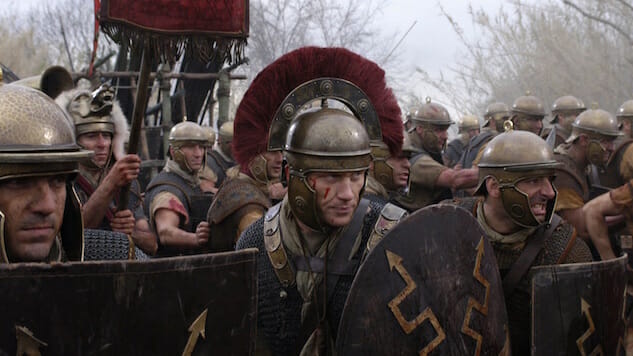
Created by: John Milius, William J. MacDonald, Bruno Heller
Stars: Kevin McKidd, Ray Stevenson, Ciarán Hinds, Kenneth Cranham, Lindsay Duncan, Tobias Menzies, Polly Walker
Original Network: HBO
Soon after starting Rome, you will be shouting “The 13th!!!!” in solidarity with its lead centurions Lucius Vorenus and Titus Pullo. The duo have a kind of Odd Couple dynamic that is bonded in blood and brotherhood, as the series tracks the fall of the Roman Republic and the rise of the Roman Empire. An ambitious and enthralling series, Rome was also expensive, and an ill-advised sprint through the timeline in Season 2 botched things enough for that to be that. But going from the story of these simple but compelling legionnaires through the betrayal of Caesar and the increasing excess of the Roman elites, leading up to Antony and Cleopatra, is all incredibly entertaining. A kind of proto-Game of Thrones in many ways, Rome boasts an outstanding cast, bloody battles, and plenty of political machinations to keep you pressing “Play Next” until its epic tale comes to an end. —Allison Keene
The Middle Ages: Miracle Workers: Dark Ages
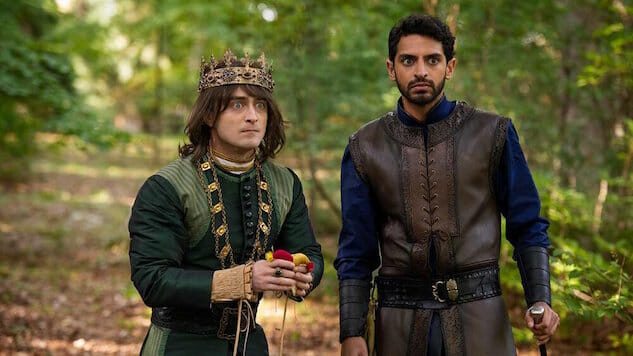
Created by: Simon Rich
Stars: Daniel Radcliffe, Geraldine Viswanathan, Karan Son, Jon Bass, Sasha Compère, Lolly Adefope, Steve Buscemi
Original Network: TBS
In the second installment of this anthology series, Miracle Workers: Dark Ages sets its hilarious cast in another setting well-worn by comedies with a British pedigree: the Middle Ages. Breakout Geraldine Viswanathan is a Shitshoveler—literally, it’s her last name—whose dad (Steve Buscemi) and local layabout prince (Daniel Radcliffe) are always getting her into something … when she’s not breaking the mold by trying to, say, read. Monty Python and the Holy Grail is a good touchstone here, with everything from old-timey doctors to executions getting a light satirical jab. The humor is quick, witty, and understated, made even more unique by the brilliantly offbeat deliveries of its stars. If ever there was a show that felt like an Eddie Izzard stand-up routine turned into a series, it would be Miracle Workers, which continues to be both one of the smartest and delightfully dumbest shows on TV. —Jacob Oller
1500s: The Spanish Princess
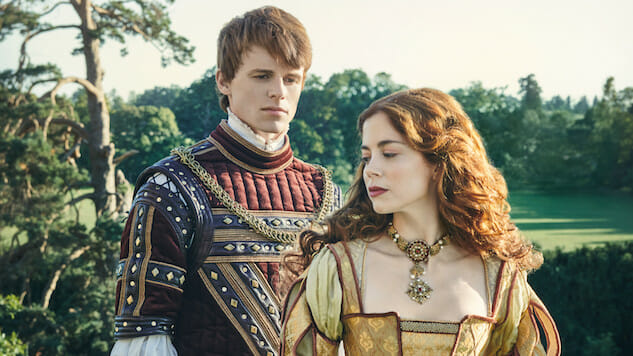
Created by: Emma Frost, Matthew Graham
Stars: Charlotte Hope, Ruairi O’Connor, Harriet Walter, Stephanie Levi-John, Laura Carmichael
Original Network: Starz
Runners up: Wolf Hall, My Lady Jane
If you love historical fiction, then The Spanish Princess is the show for you. Instead of a typical Tudor story about Henry VIII, after he decides he wants to dump Catherine of Aragon for Anne Boleyn, this show shares Catherine of Aragon’s triumph. Based on the novels by Philippa Gregory, in this rarely told story, The Spanish Princess details her happy years, which (you may not know) were 24 years of marriage before her union was annulled. What makes this story particularly compelling is its intentional choice to use a diverse cast, which is also rooted in history. While some might define the use of people of color in a historical fiction drama progressive, it is simply accurate. Chances are you have never seen this story of Henry VIII and Catherine of Aragon on screen, and it is well worth the watch. The Season 1 finale sets up a fascinating sophomore outing that further investigates the reign of Henry and Catherine, with all of the lies, romance, and beheadings that come with it. Also be sure to check out The White Queen and The White Princess, the first two installments of this anthology, to take you further back into the story of women in the English monarchy. And for the later years of Henry’s reign (and the schism of the church), definitely watch the beautifully intricate Wolf Hall. —Keri Lumm and Allison Keene
1600s: Versailles
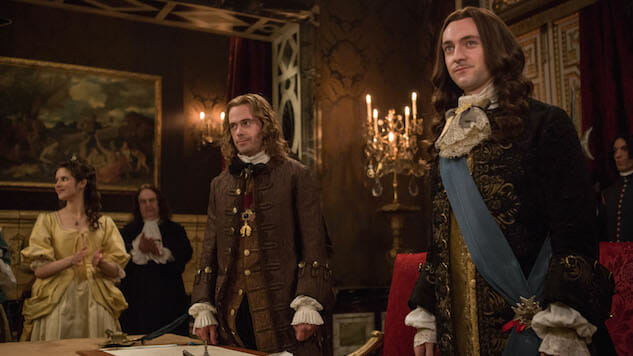
Created by: Simon Mirren, David Wolstencroft
Stars: George Blagden, Alexander Vlahos, Tygh Runyan, Evan Williams, Noémie Schmidt, Anna Brewster
Original Network: BBC Two / Canal+ / Ovation
The wonderfully opulent and soapy drama Versailles focuses on the reign of France’s King Louis XIV, also known as the Sun King. The expansion of France, and the increased taxation that lead towards revolution, plays out against the building of the magnificent Versailles, as the series leans into the courtly drama and scandals that defined the era. Blagden is fantastic as a monarch who truly believes he was chosen by God (which leaves him both bold and conflicted), and is matched in confidence by Vlahos as Louis’ brother Philippe, the Duke of Orleans, who often wore women’s clothing and had a long-running affair with the Chevalier of Lorraine. There are mistresses and sexual romps to spare in the series, but also mysteries, double-crossings, and witchcraft. This is not a stuffy historical drama, but a modern-feeling escapade with a minimal glance towards accuracy. We wouldn’t want it any other way. —Allison Keene
1700s: The Great
Created by: Tony McNamara
Stars: Elle Fanning, Nicholas Hoult, Phoebe Fox, Sacha Dhawan
Original Network: Hulu
For those who adored The Favourite, writer Tony McNamara’s “occasionally true story” focused on the rise of Catherine the future great, when she was just “a 20-year-old who’s been in Russia six months, and who—with the aid of a drunken general, an angry maid, and a nervous bureaucrat—is going up against the violent regime that is Peter’s empire,” (as one character succinctly states). The three-season series has a crisp, fast-moving script and sumptuous costuming that looks like a traditional historical drama but feels refreshingly modern in its approach. Bathed in a Marie Antoinette meets Death of Stalin aesthetic (and never going full Dickinson), the series’ acid, winning humor understands the familiar absurdity of an age filled with the constant juxtaposition of wealth and brutality. Emotionally affecting as a complicated dance of horror and hope, Catherine’s outright victories may be few and far between, but the journey is thrilling.
The Great begins in the mid-18th century, with Catherine’s (Elle Fanning) arrival at the Russian court as a naive German bride for Peter (Nicholas Hoult) the not-so-great and in fact very-much-awful. A script this clever requires very specific handling to balance its humor and drama, and both Hoult and Fanning are luminous as the ill-matched new couple. But though Catherine has a distaste (quite rightfully) for Peter, she does have a heart for her new country. “I want a strong, vibrant Russia alive with ideas, humane and progressive, where people live with dignity and purpose,” she says dreamily. “Russia?” the Emperor’s advisor Orlo (Sacha Dhawan) says in a questioning tone. “It needs to be believable.” Catherine’s maid, Marial (Phoebe Fox)—a former noble lady stripped of her position—adds, “Just tell them … no one will rape and kill you and your children, and you’ll have some bread. That would be sufficient.”
The Great really should be savored. The way it charts Catherine’s quiet but brave attempts to take power by growing a voice at court and discovering new things about herself is a really beautiful journey, punctuated by completely absurd events. It’s strange and wonderful and a fantastically funny ride. But it will also leave you pondering the nature of sacrifice and real change, and the courage it takes to overthrow a despot. Huzzah. —Allison Keene
Early 1800s: Victoria
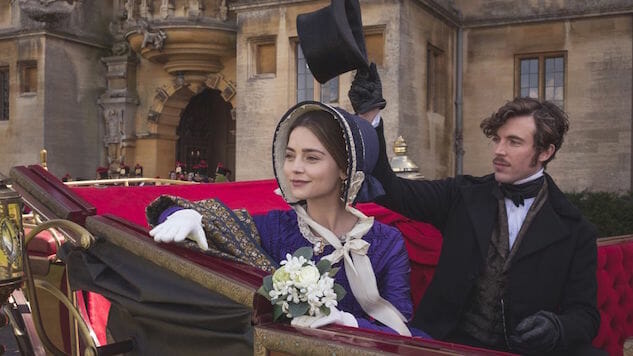
Created by: Daisy Goodwin
Stars: Jenna Coleman, Rufus Sewell, Tom Hughes, David Oaks, Alex Jennings, Nell Hudson
Original Network: PBS
Examining the early years of Queen Victoria’s reign, Victoria has never gotten the same attention as its splashy cousin The Crown. And yet, the series share many similarities. Both feature young women being pushed very suddenly into a royal role they had not been expecting, facing difficulties living under constant public scrutiny, and fighting to command respect from men who do no think them up to the task. Among the politics there are also two beautiful love stories at the center of Victoria: a chaste one between the young queen and her first prime minister, “Lord M” (as she calls him), and the other between Victoria and her future husband Albert. Both are unique in their own ways, especially in how the show allows Victoria and Albert to settle into both domestic bliss and the natural scuffles all couples face (augmented, of course, by their positions). The show truly blossoms in its second season, and continues from there to be an emotional and surprisingly cozy portrayal of the royal household, the people it employs, and a nation Victoria and Albert seek to modernize. Gorgeously costumed and compellingly crafted, Victoria is a wonderful series to fully immerse yourself in—one that will (for many Americans, at least) have you constantly on Wikipedia to learn more about the historical events it portrays. —Allison Keene
Mid 1800s: Underground
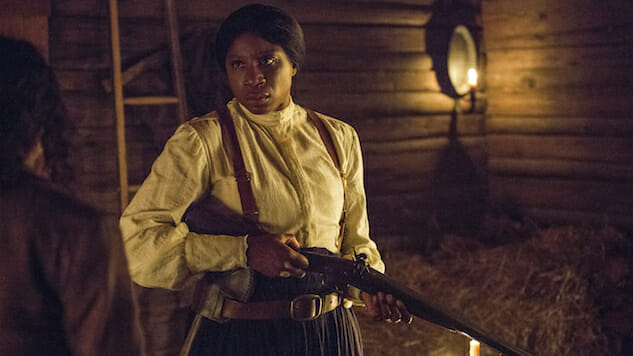
Created by: Misha Green and Joe Pokaski
Stars: Jurnee Smollett, Aldis Hodge, Jessica De Gouw, Alano Miller, Christopher Meloni, Amirah Vann
Original Network: WGN America
Before Underground, I’d like to think that I knew that TV could accomplish quite a bit. But after Underground, I know that TV can change history itself, as well as something just as powerful: language. What is a “slave”? What was a “slave,” in America? It’s not as if the WGN America series, from creators Misha Green and Joe Pokaski, and executive producers John Legend and Anthony Hemingway, is the first work of art to demand that we see black American “slaves” as humans, first. It’s that, in attempting to create a compelling framework, Underground is where human flaws and characteristics in enslaved people—like jealousy, sexual desire, vengeance, villainy, anger, heroism, spirituality, contentment—are explored with such great depth. Green, Pokaski, and their brilliant writers dared to break away from traditional slave narrative formulas, where slave equals good victim, and master equals bad victimizer.
Had they stuck with such a formula, I suspect they still would have created one of the most important and compulsively watchable shows on TV. But because they dared to break away, they created one of the most entertaining and jaw-dropping series as well—and in doing so, sent a powerful message about the difference between a slave and an enslaved person. My tongue is still getting used to saying the latter instead of the former, but my brain is already beginning to see the difference. What was an enslaved black person, in America? After Underground, I can imagine an enslaved person as a small boy, refusing a piece of candy from his half-brother and future “master” (Maceo Smedley as James). I imagine dances and yellow ribbons (Jurnee Smollett-Bell as Rosalee). I imagine blood spilled for the sake of a map to freedom, faked injuries and tattoos on top of lashings (Aldis Hodge as Noah). I imagine flames to cotton, and lost men looking for redemption—or, simply, a way out (Alano Miller as Cato). And I imagine women like Underground’s most compelling character of all, Ernestine (Amirah Vann), opening bottles in wine cellars, bathing women in tubs and praying in the dark before and after taking matters into their own hands. In addition to giving us an incredible series with heart-stopping storylines and performances, Underground gave us permission to re-imagine the past, and—perhaps most importantly—re-envision the future. —Shannon M. Houston
Late 1800s: Deadwood
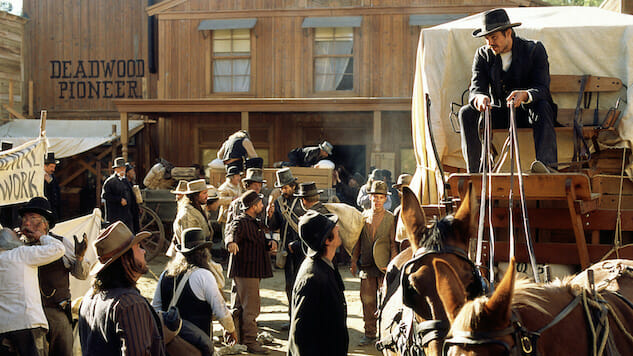
Created by: David Milch
Stars: Timothy Olyphant, Ian McShane, Molly Parker, Jim Beaver, Brad Dourif, John Hawkes, Paula Malcomson
Original Network: HBO
Runner up: The Gilded Age
Few shows sound as profanely inspired as Deadwood, a specific cadence that has also been referred to as “Shakespeare in the mud.” It deserves every kudos. The extraordinarily compelling Western is ultimately less concerned with its setting and historical accuracy (though it has plenty to spare) than it is about accurately portraying humans. Why do societies and allegiances form, why are close friends betrayed, and why does humanity’s best seem to always just barely edge out its worst? These are the real concerns that make Deadwood a masterpiece. David Milch created a sprawling, fastidiously detailed world in which to stage his gritty morality plays, and with it has come as close as anyone to creating a novel on-screen. With assistance from some truly memorable acting by Ian McShane, Brad Dourif, and Paula Malcomson, Deadwood’s sometimes over-the-top representations never veer far enough from reality for its inhabitants to become just characters. (A 2019 movie on HBO also helps sew things up in a satisfying way after the original series’ sudden ending.) —Sean Gandert and Allison Keene
1900s: The Knick
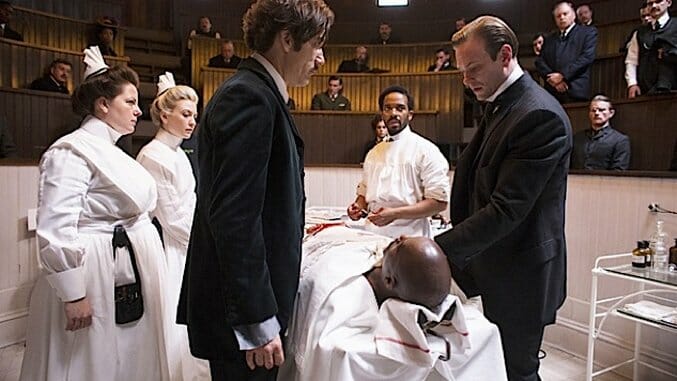
Created by: Jack Amiel, Michael Begler
Stars: Clive Owen, Andre Holland, Jeremy Bobb, Juliet Rylance, Eve Hewson, Michael Angarano, Chris Sullivan
Original Network: Cinemax
Runner up: Anne with an E
Even though The Knick was conceived by Jack Amiel and Michael Begler, and even though every episode of it is filled with fantastic acting performances (Clive Owen should have won a lot of awards for his work as the drug-addicted megalomaniac Dr. Charles Thackery) and incredible attention to period detail of this early 1900s hospital, the success of this series falls square in the lap of Steven Soderbergh. By allowing him to direct, shoot, and edit each installment, he turned The Knick from just another medical drama into something far more artistic. Even when the most gruesome procedures were playing out on screen, Soderbergh’s use of color, lighting, and camera movement made it so you couldn’t look away. And that was essential, as the show’s exploration of the early days of mental health, the disgraced ideas of eugenics, and the rise of Black Americans into the medical field always made this show a cut above. —Robert Ham and Allison Keene
